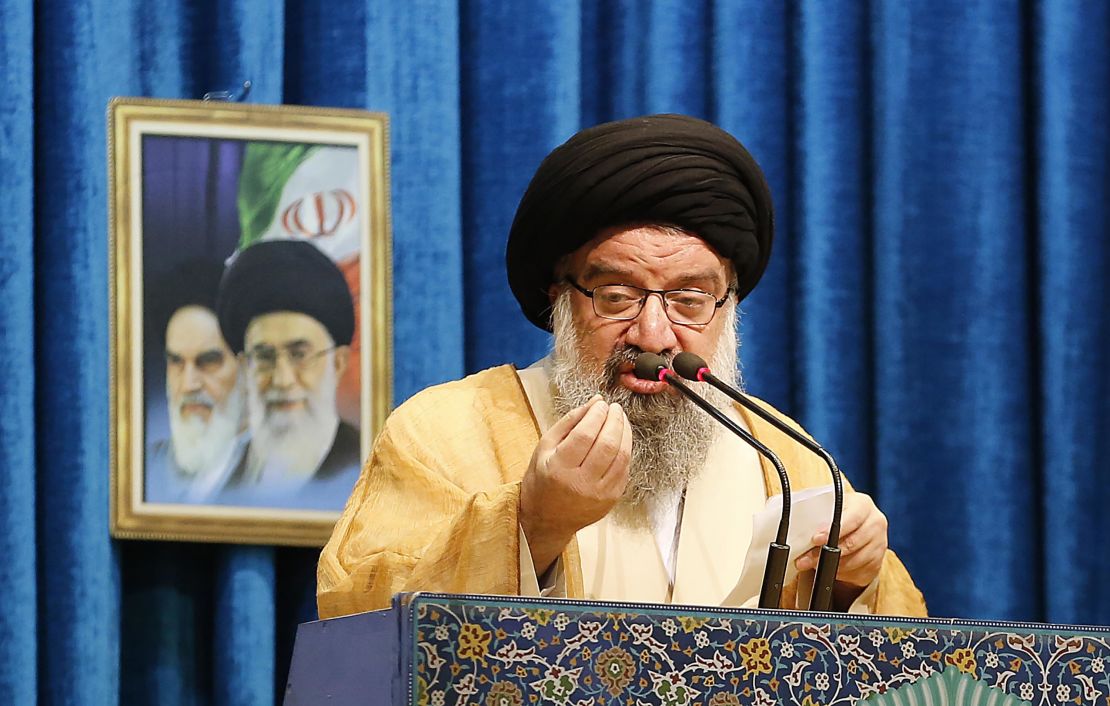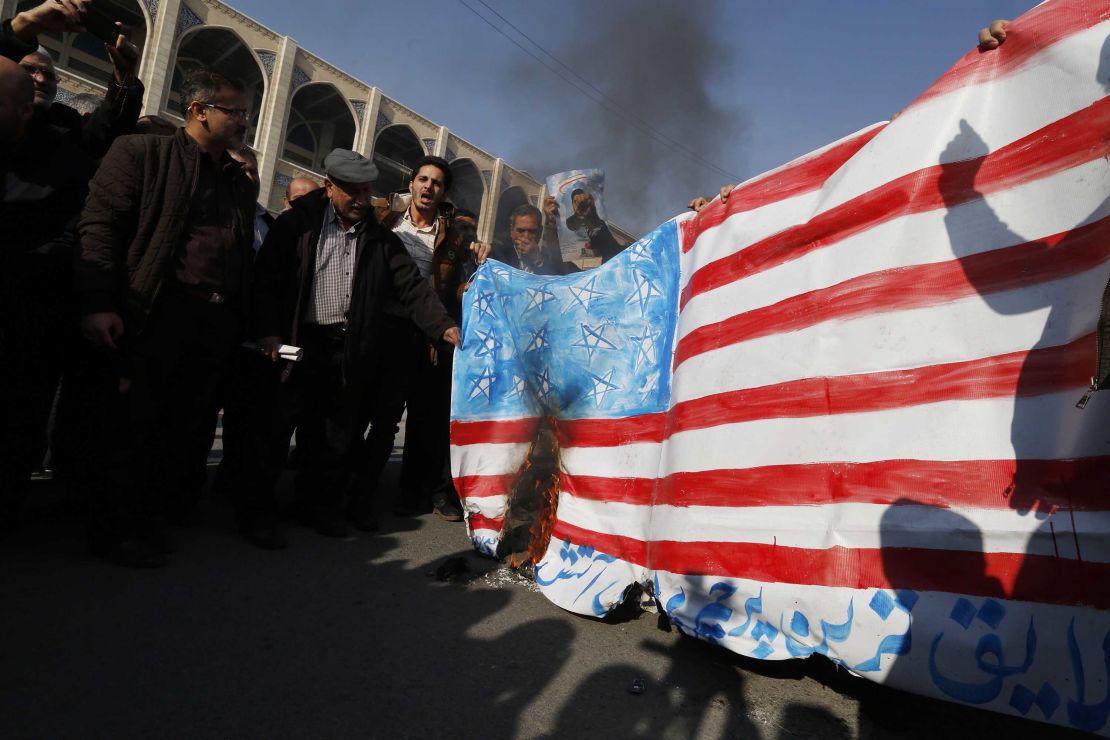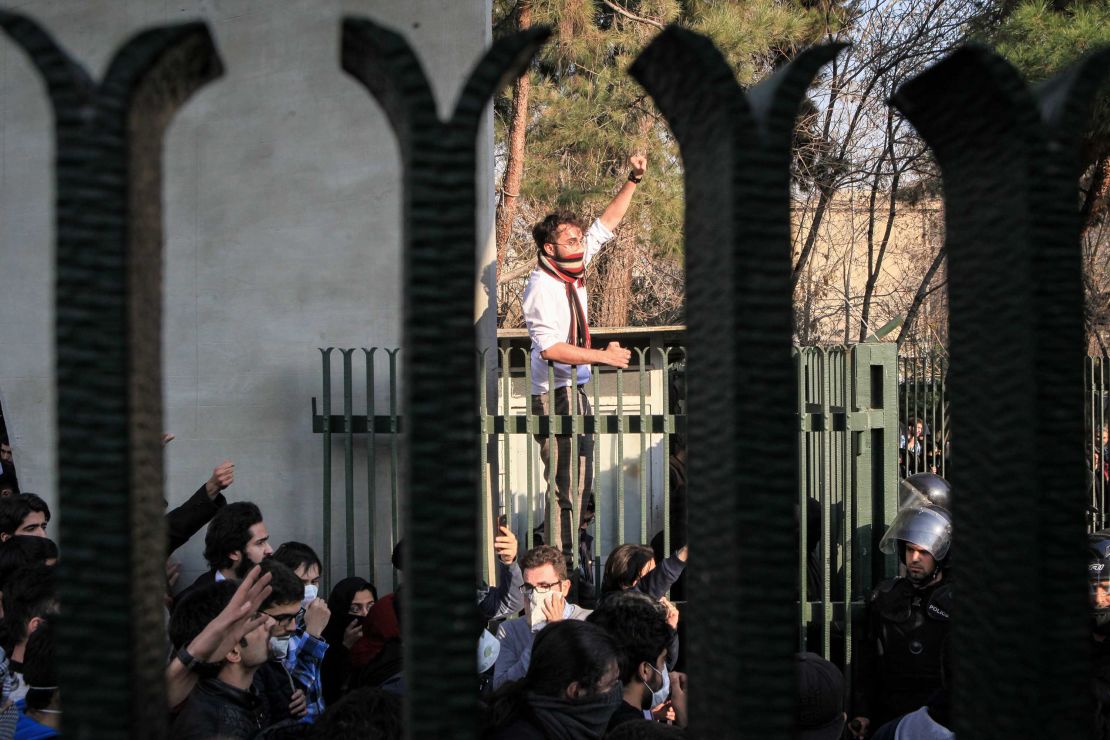UN human rights experts urged Iranian authorities to respect the rights of protesters and voiced concern over Tehran’s restriction of social messaging services, in a joint statement issued Friday by the UN agency for human rights.
The statement by four Special Rapporteurs – expert advisers to the United Nations who work on a voluntary basis – comes eight days after anti-government protests first broke out in Iran.
At least 21 people were killed and 450 were arrested in the protests, many in clashes with security forces trying to quell the rallies.
The protests, the most powerful challenge to the regime in years, appeared to have fizzled Thursday, after a claim by Revolutionary Guards commander Mohammad Ali Jafari that the unrest was officially over. Mass pro-government rallies have taken their place in many Iranian cities.
“We are very disturbed by the way the authorities have responded to the protests,” the four Special Rapporteurs said in their statement, released by the Office of the UN High Commissioner for Human Rights.
“The government’s instruction to the Revolutionary Guards to hit hard against the protesters, and the judiciary’s threats of harsh punishment, are unacceptable.
“We urge the authorities to exercise restraint and respond proportionately in their efforts to control the protests, to limit the use of force to a strict minimum, and to fully respect the human rights of the protesters, including their rights to life, freedom of expression and peaceful assembly.”
The UN experts said they shared the concerns of Iranian civil society groups for those arrested.
“We are also very concerned at reports that the Government has blocked the Internet on mobile networks, and that social media services like Instagram and messaging services like Telegram have been shut down in an attempt to quell the protests,” they said.
“In some regions, Internet access has been blocked altogether. Communication blackouts constitute a serious violation of fundamental rights.”
The experts added that the lack of measures to address the underlying causes of the unrest through nonviolent means was “disturbing.”
The protests began just over a week ago over Iran’s stagnant economy and the rising cost of living, and developed into a broader outcry against the government.
The UN Security Council met Friday to discuss Iran after the US requested an emergency session amid the demonstrations. US to UN Ambassador Nikki Haley called the protests “something the world must take note of” and a “powerful exhibition of brave people” risking their lives to exercise their right to speak.
Iran’s ambassador to the UN said the US abused its power by calling for the meeting, saying the protests in his country fall outside the scope of the Security Council mandate.
“There is a long history of US. bullying at the UN, but this is a preposterous example – the purely internal affairs of a nation,” Ambassador Gholamali Khoshroo said, addressing the council.
Fiery sermon
In Tehran, firebrand cleric Ayatollah Ahmad Khatami delivered a fiery sermon during prayers at the Grand Mosalla mosque in which he pointed to the United States and Israel as fomenting protest.
“Any voice that represents Trump and Netanyahu is not the voice of the people, it is the words of foreigners and the people will make them choke on their words,” he said, referring to US President Donald Trump and Israeli Prime Minister Benjamin Netanyahu.
Khatami spoke against the political divide in Iran, saying “religious leaders are on the side of the downtrodden and those who have problems making ends meet.”
He added: “I urge you not to turn this into partisan politics. People want freedom. They want their voice to be heard.”
The presence of Khatami, who often leads the prayers in turbulent times, signaled that the authorities are taking recent events across the country very seriously.
Numbers in attendance at the mosque, always busy and bustling on a Friday – Islam’s holy day – appeared even larger than usual. A march began from outside the prayer hall once prayers ended.

Rouhallah, an Iranian national at the Grand Mosalla who preferred only to give his first name, said he hoped the country could come together to address protesters’ real concerns about the price of basic foods like bread and chicken.
“I don’t think the solution is regime change,” he told CNN after prayers. “I think the solution is to bring bread to the people. I think there are a lot of solutions for that and absolutely, we have to be thinking of them.”
Another Iranian who gave only his first name, Hosseini, said: “Even though there are some shortcomings on the part of our officials, we are standing by our revolution and will wait so that our officials can discharge their duties in the best possible way.”

Iranian state media broadcast wall-to-wall images of pro-government rallies in Tehran, Kerman and Tabriz.
Both prayers and the pro-government marches that followed in Tehran passed off peacefully, according a CNN producer on the ground.
Interior Minister Abdolreza Rahmani Fazli claimed Thursday that no more than 42,000 people had taken part in the anti-government protests since December 28, according to the semiofficial Iranian Student News Agency. That isn’t a high number of people, Fazli said, adding that protests are “normal occurrences and happen in all countries.”
On Wednesday, the Islamic Revolutionary Guard Corps pinned the number at 15,000.
CNN has not been able to verify either number.

US, Iran trade barbs
In a statement released late Thursday, Haley warned other nations against trying to impede the Security Council’s discussion of what she called a “troubling and dangerous situation” in Iran.
“The world has witnessed the horrors that have taken place in Syria, that began with a murderous regime denying its people’s right to peacefully protest,” she said. “We must not let that happen in Iran.”
Iranian and US officials have traded barbs for the past week, and Tehran maintains that the United States and its allies orchestrated the unrest.
Tehran accused US President Donald Trump and Vice President Mike Pence of inciting Iranians to protest against the government through a series of tweets and described US interference in Iranian issues as “grotesque.”
There is no evidence that Washington had any direct role in orchestrating the anti-government protests, beyond encouragement through social media and published remarks.
CNN’s Angela Dewan, Bijan Hosseini, Marilia Brochetto, Elizabeth Joseph and Richard Roth contributed to this report.







